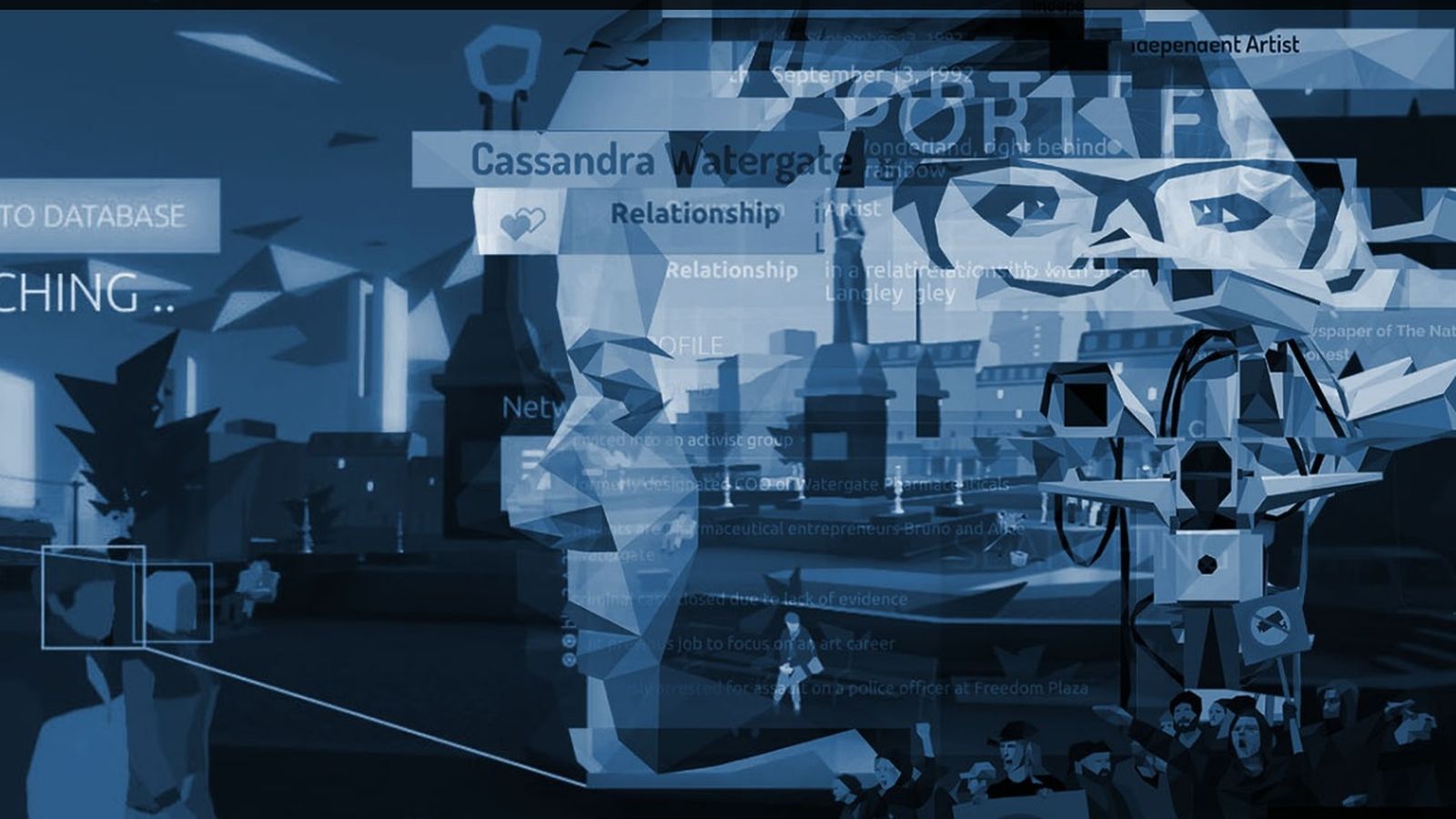Unseen Gazes in Orwell: Keeping an Eye on You
An indie game asks tough questions about privacy in a connected world

We often curate our modern lives in online spaces. In this translucent world, we don’t have the power to control who sees what. Video games, similar to many art forms, have ruminated over this give-and-take. As digital products, it is perhaps even more poignant when a game grapples with the topics of privacy, surveillance, and security. The episodic indie game Orwell (2016) manages to portray a stark investigation of these themes.

Big brother watches
A bomb explosion rocks a park in The Nation. This incident kicks off the game’s investigation story, with the player as a new government investigator who takes up the case. A surveillance system, called the Orwell program, aids the protagonist in the quest to track down perpetrators.

Or does it really aid humans? The job of the of the investigator is to comb through online spaces, find data chunks, and feed it to the program, but what you choose to highlight could have repercussions for another person. If a surveillance target had an activist past, the AI might label them as dangerous. Your ability to ruin lives becomes all too apparent.
Because the Orwell system is unable to distinguish nuance, a pivotal trait, it raises the stakes. Nonetheless, the player still has to provide clues to stop future attacks. This dynamic puts the player in an interesting catch-22. Even as the investigator becomes more familiar with a citizen’s life, they can ruin it with a couple of clicks of a mouse.
Shaded worlds
Orwell’s gameplay dynamic hinges on the quality of the narrative. If the player cares about the characters, then they become more than names on online profiles. Thankfully, the game humanizes the characters through precious tidbits: Personal histories, photos, and connections illuminate a character’s own personal stories. Even something as small as the name of their cat adds to this process.

From their hidden perch, the investigator rummages through these spider webs of lives built up over years. Not even private telephone conversations are truly private. As one investigates the fictional internet microcosm, one can’t help but wonder about your own online footprint — what would it look like to an investigator? If nothing else, this is an exercise in self-reflection. Daniel Marx, the creative director behind the game (at Osmotic Studios), stated:
Games can be a great tool to convey how certain dynamics work in real life. Putting players into roles they normally don’t fill or giving them abilities they normally don’t have can get players to reflect and find their own stance towards issues in their lives.
Orwell has the ability to put a person in the shoes of an online investigator. Through the exploration of fictional lives, the player can think about their own real-life choices. Good art has a habit of doing that.
Interaction with a world
Because of its nature as a simulation game, Orwell puts the player in morally grey situations. As an investigator, one has significant legal power, but repercussions make each decision a tradeoff. The fact that the consequences of choices aren’t always easy to predict makes it feel lifelike.

The theme of choice versus surveillance is also reflected in the terms that are littered throughout the content. The title of the first chapter is The Clocks Were Striking Thirteen, which references the opening sentence of George Orwell’s book 1984. Furthermore, the logo of the Orwell program itself is an eye, similar to the examples that grace many of 1984’s covers that evoke Big Brother’s gaze. Symes, the player’s overseer, also has a name that is reminiscent of a 1984 character, called Syme.
Orwell’s plot also links with real-world events. After terrorist attacks in the 2000s, many western countries enacted more pervasive surveillance protocols; this also coincided with the rise of more powerful cellphones, social media, and ubiquitous GPS tracking. Players thus bring their own experiences to a playthrough.
A searing lead
Humanity’s second life, located on the internet, is scrutinized like never before in Orwell. Since it mimics modern screens, it creates a perceptive deconstruction of how many people spend their free time. This mirror reflects our own fears about the new world that has become enmeshed in so many human routines. Through its simple mechanics, it communicates a clear, impactful narrative.
The characters, from the surveillance supervisor to suspects, articulate different political views, although it never comes across as unnatural. Expression is commonplace in online spaces; in fact, it is their lifeblood. All these puzzle pieces, when connected, create a picture of a person’s character.

Orwell confronts us with a bird’s-eye view of a modern surveillance system. By doing this, it makes clear to the player the true extent of what many give away without a second thought. The relationship between data and its human creator is tenuous, though. Human connections are more complex than that.